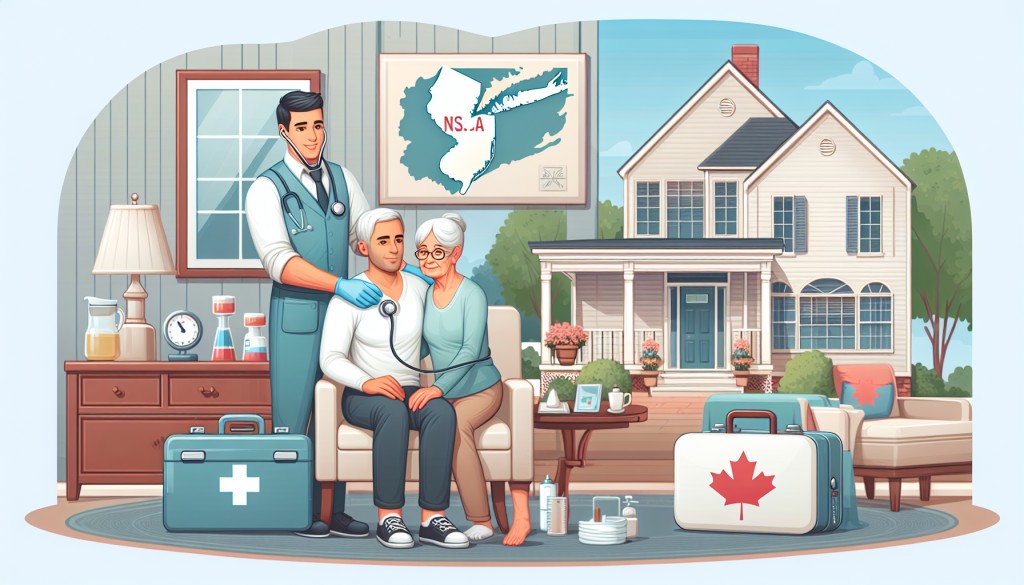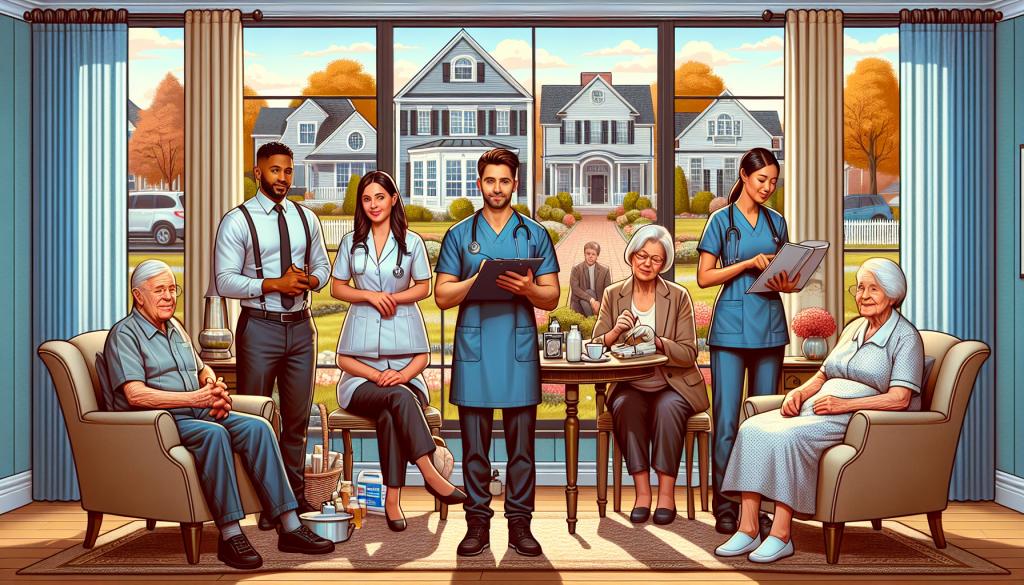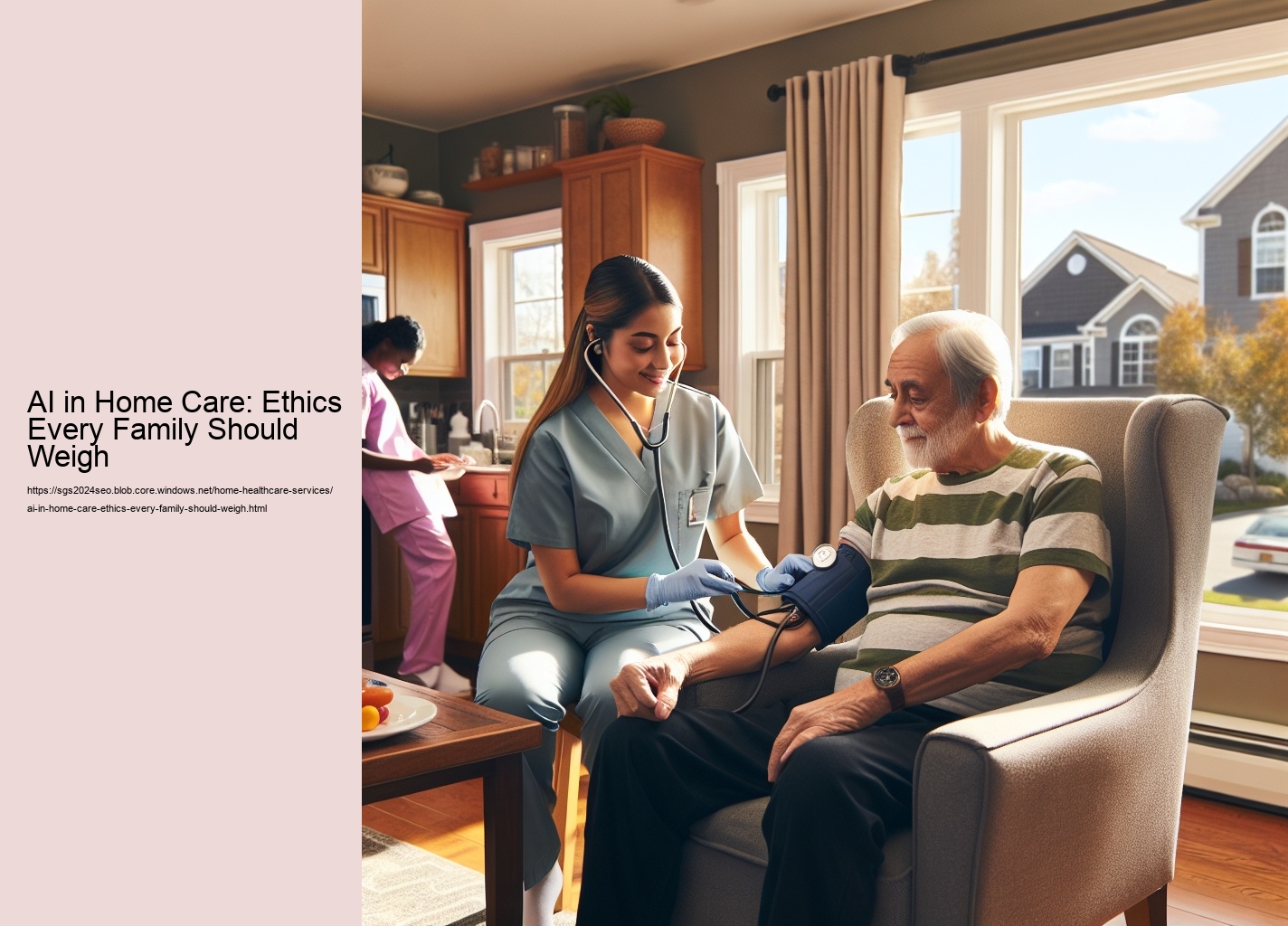Validate Licensing, Certification, and High Quality Rankings
Before you sign with any home doctor in 2025, treat licensing, accreditation, and quality rankings as non‑negotiables. Insurance 101: Getting In-Home Nursing Approved . Start with the basics: confirm the firm is appropriately certified in your state for the specific services you require. "Home health and wellness" (skilled nursing, treatment, injury treatment) is controlled in different ways from "home care" or "individual treatment" (bathing, dressing, companionship). Utilize your state health division or professional licensing board's online data source to confirm the agency permit is active and in great standing, and that it covers the appropriate service group. If the company will certainly bill Medicare, verify it is Medicare‑certified; you can cross‑check this on Medicare's Treatment Compare internet site.
Certification isn't the like a certificate, however it signifies the agency has met greater standards and goes through routine external evaluation. Look for appreciated certifying bodies such as The Joint Commission, MAN, or ACHC. Request for a current accreditation certificate and the date of the last survey. For non‑medical home care, accreditation is volunteer; if a firm isn't recognized, they ought to be able to explain just how they maintain top quality and oversight in its absence.
Do a deeper credential look at individuals that will be in your home. Nurse practitioner, licensed practical nurses, physical and occupational therapists, and social workers all have private licenses you can verify via state boards. Home health assistants need to satisfy state training demands. It's reasonable to ask the agency to confirm that all staff have passed background checks, are out the federal OIG Exemptions List, and bring ideal specialist obligation and employees' compensation insurance coverage. Demand evidence of the firm's general responsibility insurance; many families additionally ask for a certification of insurance policy upon having.
Usage objective high quality scores to compare companies, not just testimonies. On Medicare Care Compare, evaluate the star ratings and go into specific procedures like prompt initiation of care, rehospitalization prices, enhancement in wheelchair and self‑care, and individual experience scores from HHCAHPS surveys. In 2025, Home Wellness Value‑Based Purchasing applies across the country, so ask the firm to share its most recent performance or result records and what it is doing to improve. For Medicaid home- and community‑based services, examine your state's service provider directory for top quality indications, vital incident reports, and EVV (electronic browse through confirmation) compliance data. On the internet testimonials can be helpful but should not bypass official high quality information and regulative documents.
Demand openness. Ask the company for its latest state survey results and plan of adjustment, any kind of CMS sanctions or fines, and just how problems are dealt with. In an age of telehealth and remote surveillance, inquire about device safety and privacy techniques, HIPAA conformity, and whether any kind of digital tools they use are FDA‑cleared where suitable. If the agency asserts health center or doctor partnerships, confirm just how they share details, especially if they integrate with your clinician's record system.
Warning consist of evasive answers regarding licensing or study background, ended accreditation, missing evidence of insurance coverage, unusually high staff turn over with no explanation, or top quality scores well listed below neighborhood averages. A respectable company will certainly invite these concerns, supply documents promptly, and help you analyze ratings in the context of your requirements. Confirming qualifications and top quality up front takes some time, but it is one of the most reliable way to protect risk-free, reliable care in your home.

Assess Telehealth, Remote Tracking, and Data Security
Examine Telehealth, Remote Surveillance, and Data Safety and security
In 2025, selecting a home healthcare provider means looking past bedside skills to the electronic foundation that supports your treatment. Telehealth, remote individual surveillance, and information safety and security currently establish just how convenient, safe, and linked your care will certainly be.
Begin with telehealth. Video clip visits should feel as reliable as an office visit. Ask just how easy it is to timetable, whether you can see the exact same medical professional for continuity, and what occurs if the connection goes down. Try to find functions like e-prescribing, safe and secure messaging, after-visit recaps, and language gain access to such as interpreters or subtitles. Verify the platform works on your gadgets, supports ease of access requirements, and provides technology aid for seniors or caregivers. Just as important is combination: does the telehealth system speak to your existing medical records so your medical care medical professional sees updates? If care crosses state lines, validate licensure and whether your insurance firm covers the solutions you intend to use.
Remote monitoring can transform day-to-day live for individuals handling chronic conditions, recouping after surgical treatment, or requiring safety and security checks. Focus on clinical worth and functional dependability. Which conditions do they check and with what tools? Are the gadgets FDA-cleared and confirmed for home usage? That enjoys the data, just how typically, and what are the feedback times for unusual analyses in the evening or on weekends? Ask exactly how sharp thresholds are set to restrict false alarms and how often those thresholds are evaluated. Check whether tools are lent or acquired, that handles configuration, training, and substitute, and what mobile or Wi‑Fi connection is needed. Interoperability still matters here also: will your information circulation into your health and wellness record, and can you see it in a patient app?

Information safety and security need to never ever be a second thought. A carrier's insurance claim of "HIPAA certified" is a baseline, not a differentiator. Look for independent audits or certifications (for example, SOC 2 Kind II, HITRUST, or ISO 27001), security of information in transit and at rest, multi-factor verification, and role-based access with audit logs. Inquire about case reaction and violation alert procedures, just how often they run protection drills, and their strategy to ransomware resilience and back-ups. For home devices, confirm that data is encrypted on the gadget and throughout transmission, software program is maintained to day, and shed or swiped devices can be from another location cleaned. Clarify that has your information, how much time it's maintained, how to ask for deletion, and whether de-identified information is utilized for analytics or shown to third parties. See to it a Service Partner Agreement exists between the technology suppliers and the treatment supplier, which frontline team are learnt personal privacy techniques, including acquiring consent for any kind of recording.
Lastly, check out the human side of the innovation. Will they assist set up your Wi‑Fi or supply cellular sets if you do not have broadband? Do they offer clear directions, large-print materials, multilingual assistance, and caregiver training? Is there 24/7 technology support and a straightforward method to rise clinical worries?
In a marketplace crowded with applications and devices, the very best home healthcare services in 2025 blend high-grade medical care with reputable digital gain access to, workable monitoring, and rigorous security of your info. Pick the team that discusses their technology simply, verifies their safeguards, and makes it very easy for you and your family members to utilize.
Evaluate Care Plans, Staffing, and Caregiver Fit
Picking home healthcare in 2025 methods looking past a shiny brochure. The ideal companion will show you a clear care strategy, dependable staffing, and a caretaker who truly fits your loved one's requirements and individuality. Begin with the care plan. Ask how the firm examines needs and sets objectives: not just identifies, however practical capabilities, drugs, fall danger, cognitive assistance, nourishment, isolation, transport, and caregiver reprieve. A strong strategy is composed by or under the guidance of a signed up nurse or therapist, with quantifiable end results (for example, fewer falls, enhanced mobility, drug adherence) and a schedule for testimonial-- usually every 30 to 60 days or after any kind of modification in condition. In 2025, several companies make use of remote client tracking and telehealth; make certain the strategy describes what gadgets are utilized, who evaluates the data, and how details is shown your physician. Interoperability and personal privacy matter-- ask whether their systems attach to your doctor's digital records, exactly how data is secured, and that can see updates.

Staffing is where promises fulfill truth. Clear up whether caregivers are W‑2 employees or 1099 professionals; employees normally have more powerful oversight, training, and insurance coverage. Validate qualifications (CNA, HHA, LVN/LPN, RN), background checks, driving records if transport is included, booster shots, MOUTH-TO-MOUTH RESUSCITATION, and any kind of specialty training like mental deterioration or Parkinson's treatment. Ask for their turn over rate, ordinary caretaker tenure, and fill rate for changes-- numbers that expose stability. Connection is important: will you have a main caretaker with a little backup pool, or see constant rotations? What is the backup prepare for unwell days, no-shows, tornados, or public wellness notifies? In a limited labor market, firms that pay rather and supply advantages have a tendency to keep team far better-- don't think twice to ask how they support caregiver well‑being and protect against exhaustion.
Caregiver fit exceeds accessibility. Share candid details concerning regimens, language choices, social or religious methods, animal comfort, smoking level of sensitivities, music or food preferences, and character style. A good agency will use organized matching-- skills, language, cultural proficiency, gender preference, driving capacity, and physical capability for transfers or devices-- to propose a caretaker and set up a meet‑and‑greet. Numerous will let you attempt a short trial change prior to dedicating. Observe chemistry: Does the caregiver pay attention, make eye contact, and ask thoughtful questions? Do they respect borders while being proactive? If your enjoyed one has mental deterioration, search for patience, redirection skills, and a calmness, comforting visibility.
Interaction should be simple and constant. Ask to see the family members site or app if one exists: Can you watch see notes, jobs completed, vitals, and messages? Just how swiftly does the workplace respond, and what is the escalation course after hours? Who is your named treatment supervisor, and exactly how commonly will they visit face to face to monitor care? In 2025, many states call for digital browse through verification-- validate that clock‑in/ out protects you from invoicing for missed time, and that your information is not used for anything else without permission.
Quality and responsibility are nonnegotiable. Try to find certification (Joint Commission, MAN, or ACHC) and state licensure. Ask about client contentment ratings, grievance resolution time, incident rates (drops, hospital stays), and any kind of value‑based programs they participate in. Request 2 current client referrals with comparable requirements. Review contract information carefully: minimum hours, termination terms, substitute warranties, and what occurs if the caretaker isn't a fit. If you're using Medicare for proficient home wellness, clarify what is covered and for how long; for private task care, ask about long‑term care insurance coverage, Medicaid waivers, VA benefits, and whether the firm can assist with paperwork.
Practical safety and security concerns round out the image. Just how do they analyze the home for threats and recommend devices? Do they educate caregivers on secure transfers and infection control? What is the plan on cams in the home? If the caretaker will drive your liked one, confirm insurance policy protection and lorry standards.
Warning consist of unclear or cookie‑cutter care strategies, no RN oversight, high turn over, regular last‑minute schedule adjustments, reluctance to share end result information, pushy sales tactics, or resistance to a meet‑and‑greet. Green lights include transparent reporting, predictable staffing with backups, considerate matching, and a clear prepare for constant improvement.
Ultimately, the appropriate choice feels both expert and individual. You must see a plan you can comprehend, a group you can get to, and a caretaker your loved one looks forward to seeing. If any piece doesn't really feel right, keep looking-- fit, in home care, is everything.
Compare Pricing, Insurance Coverage Coverage, and Agreement Terms
Comparing pricing, insurance protection, and agreement terms is where most households either conserve thousands-- or run into undesirable surprises-- when selecting home health care solutions in 2025. Treat this like you would certainly any kind of significant acquisition: need clearness, confirm benefits in creating, and review the fine print with a calmness, hesitant eye.
Beginning with prices. Ask each supplier for an itemized quote that matches your actual treatment strategy: number of hours each week, degree of caretaker (aide vs. LPN/RN), and any specialized requirements such as dementia care, wound care, or post-surgical support. In 2025 you'll see a number of models-- per hour rates, visit-based fees, live-in rates, and packed "crossbreed" strategies combining in-person treatment with telehealth and remote tracking. Compare apples to apples by including add-ons: minimum-hour demands, overtime limits, weekend break and holiday costs, traveling or car parking costs, nurse supervision or treatment administration fees, modern technology or gadget leasing, and fees for urgent scheduling. Ask just how commonly rates can change, whether there's a price-lock duration, and if boosts are connected to a fixed portion or an index. Clarify what takes place when the treatment plan modifications mid-month: do they pro-rate or re-quote? If you're considering a registry instead of a full-service agency, consider your responsibility for payroll taxes, employees' compensation, and liability-- what looks cheaper upfront can cost more in danger and administration.
Next, pin down insurance coverage. Know the distinction in between clinical home health (experienced nursing, therapy, usually covered if medically required) and non-medical home treatment (assist with bathing, dishes, and companionship, commonly not covered by traditional medical insurance). For Medicare: competent home health and wellness can be covered when eligibility standards are met, but individual treatment is usually not, unless folded into a strategy of treatment. Medicare Benefit plans increasingly offer additional at home support, meal delivery, or remote tracking-- advantages differ extensively by strategy, call for in-network carriers, and may require prior authorization or recertification, so verify restrictions, copays, and see caps before you start. Medicaid advantages and Home- and Community-Based Services waivers can be charitable however vary by state and managed treatment plan; waiting lists and supplier networks issue. Long-lasting care insurance policy can fund considerable hours when benefit triggers are satisfied (normally requiring aid with two or more activities of day-to-day living or cognitive problems), but watch elimination periods, daily or month-to-month caps, and life time maximums. Professionals may get Aid and Attendance or Homemaker/Home Wellness Assistant services through the VA. Ask if the agency will certainly confirm advantages, take care of consents, and expense directly, and whether they'll proceed treatment if authorizations lapse. If you prepare to self-pay, inquire about price cuts for longer routines, autopay, or bundled programs. HSAs and FSAs can commonly be used for clinically necessary solutions; for tax reductions or credit histories, get in touch with a tax obligation specialist.
Currently, the agreement terms-- the component the majority of people skim and later on remorse. Try to find:
- Discontinuation and notice: Can you stop briefly or cancel scot-free? Are there minimums or early termination costs?
- Auto-renewal and rate modifications: Just how are increases communicated and covered?
- Staffing and substitutions: How swiftly do they replace a caretaker that's ill or not a fit? Is there a test duration or contentment guarantee?
- Non-solicitation and buy-out: If you wish to work with a caregiver directly later on, what cost applies?
- Worker standing and insurance: Are caregivers W-2 employees covered by workers' comp and liability insurance policy? Request proof.
- Range of practice: What tasks can assistants legally carry out in your state (medicine management, transfers, catheter treatment)? That monitors and exactly how often?
- Documentation and transparency: Will you have access to electronic check out logs, treatment notes, and reassessments? Who updates the care strategy and exactly how regularly?
- Billing cycle and disagreements: Deposits, late fees, refunds for unused hours, rounding regulations for change start/stop times, and the procedure for disputing an expense.
- Security and personal privacy: Occurrence coverage, infection control, history checks, driving plans, and data privacy for any remote monitoring gadgets.
- Disagreement resolution: Mediation conditions, venue, and your civil liberties under state customer legislations.
Do a simple "true price" contrast throughout finalists: projected regular hours x rate + all expected fees-- validated insurance reimbursement. Then layer in non-financial worth: responsiveness, back-up protection, supervisory high quality, and result monitoring. In 2025, trustworthy agencies can show top quality metrics and might join value-based programs-- request their hospitalization decrease rates or customer contentment ratings.
Prior to signing, obtain every guarantee in writing, consisting of start day, caretaker certifications, and the exact solutions covered. If the contract feels thick or prejudiced, have actually a trusted advisor or attorney review it. The most effective bargain is not just the lowest rate-- it's the setup that delivers secure, trustworthy treatment with predictable costs and no surprises.
